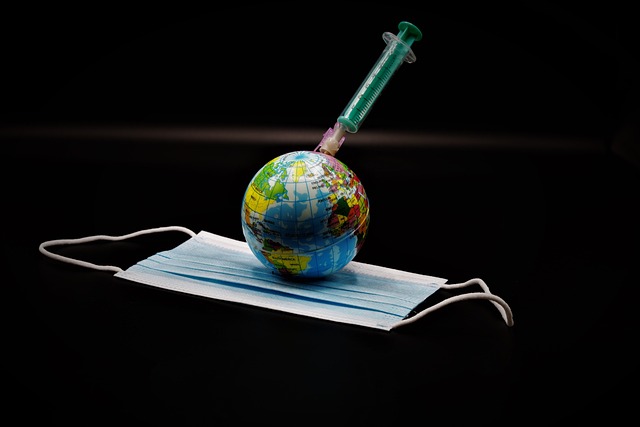In the competitive UK research landscape, translation services specializing in UK Research and Development (R&D) documents are crucial for global collaboration and compliance. These services ensure data integrity, maintain scientific accuracy, and adhere to stringent UK regulations like GDPR and DPA. They employ linguistically skilled professionals with domain expertise, implementing robust security measures and quality assurance processes. By prioritizing experienced translators, confidentiality agreements, and compliance with international standards, researchers can safeguard their sensitive R&D documents while unlocking global insights through effective translation. Technological advancements, including AI and machine learning, are revolutionizing these services, promising increased efficiency and precision without compromising quality.
“Navigating the complex landscape of research translation can be a challenge, especially within the stringent regulatory environment of the UK. For researchers seeking accurate and compliant translations of their documents, understanding the key considerations is vital. This article guides you through the process, from grasping compliance requirements to exploring the ethical standards that define professional translation services for UK Research and Development Documents. By delving into real-world case studies, we also offer insights into overcoming common challenges and future trends shaping this dynamic field.”
- Understanding Compliance Requirements for UK Research Translations
- The Role of Professional Translation Services in Research
- Key Considerations when Choosing a Translation Provider
- Ensuring Accuracy and Quality in Research Document Translations
- Adhering to Ethical Standards in Research Translation Practices
- Legal Implications of Non-Compliant Translations for UK Research
- Common Challenges in Translating Research Materials and Solutions
- Case Studies: Successful Compliance in UK Research Translation Projects
- Future Trends and Innovations in UK Research Translation Services
Understanding Compliance Requirements for UK Research Translations

When it comes to translation services for UK Research and Development (R&D) documents, understanding compliance requirements is paramount. The United Kingdom has stringent regulations governing the handling of research data, including translations. These rules are in place to safeguard sensitive information, ensure data integrity, and maintain trust among stakeholders. Therefore, translation service providers must be well-versed in relevant laws and guidelines such as the Data Protection Act (DPA) and General Data Protection Regulation (GDPR).
Compliance involves more than just legal adherence; it also encompasses ethical considerations. Translations must accurately convey the original meaning while preserving the scientific integrity of the research. This requires translators with specialized knowledge in the field to handle technical terms and concepts correctly. Furthermore, documentation must be secure throughout the translation process, employing encryption and access controls to protect data confidentiality.
The Role of Professional Translation Services in Research

In today’s global research landscape, collaboration knows no borders. Professional translation services play a pivotal role in facilitating this international exchange by providing accurate and compliant UK research translations. When dealing with sensitive R&D documents, it’s not just about converting words from one language to another; it’s about preserving the integrity of data, methods, and results while adhering to specific regulatory standards.
These translation services employ linguists who are not only fluent in both source and target languages but also possess a deep understanding of scientific terminology and research methodologies. They work closely with researchers and industry experts to ensure that each translated document is not just linguistically sound but also legally compliant, meeting the stringent requirements set by UK regulatory bodies. By leveraging advanced technologies and quality assurance processes, these services guarantee precision, consistency, and confidentiality in every translation project for UK research documents.
Key Considerations when Choosing a Translation Provider

When selecting a translation provider for UK research and development documents, several key considerations come into play to ensure accuracy and compliance. Firstly, it’s crucial to assess their expertise in handling scientific and technical content, as this field demands a deep understanding of jargon and specialized terminology. Look for providers with experienced translators who specialize in research translations, ensuring they can deliver precise and consistent results.
Additionally, compliance with industry regulations is non-negotiable. Reputable translation services will have a clear understanding of UK and international standards, such as GDPR and ISO standards, to protect sensitive data and maintain ethical practices. Check their quality assurance processes, security measures, and confidentiality agreements to safeguard your documents.
Ensuring Accuracy and Quality in Research Document Translations

When seeking translation services for UK research and development documents, accuracy and quality should be your top priorities. Translators must possess a deep understanding of the specific domain to convey technical concepts accurately. They should also have expertise in translating from English into other languages, ensuring that nuances and cultural sensitivities are appropriately considered. Reputable translation service providers employ professional translators who are native speakers, thereby guaranteeing grammatical correctness and fluency.
To maintain high standards, these services often include quality assurance processes such as proofreading and editing. They may also utilize specialized terminology databases and glossaries to ensure consistency across translations. This meticulous approach is particularly crucial for research documents, where even minor errors could compromise the integrity of findings or lead to misinterpretations.
Adhering to Ethical Standards in Research Translation Practices

When availing of translation services for UK research and development documents, adhering to ethical standards is paramount. Researchers and institutions must ensure that translations accurately convey the original meaning while respecting the integrity of the data and methods presented. This includes maintaining confidentiality, as many research projects involve sensitive information that requires protection.
Translation companies working with research materials should also be compliant with regulations such as GDPR (General Data Protection Regulation) to safeguard personal data. Moreover, they must demonstrate expertise in scientific terminology to avoid misinterpretations or biases that could impact the validity of the research findings.
Legal Implications of Non-Compliant Translations for UK Research

In the realm of UK research, especially when dealing with sensitive data or industry-specific terminology, translations must adhere to stringent legal requirements to maintain compliance and avoid potential pitfalls. Non-compliant translations can have significant legal implications for researchers and organizations alike. Misinterpretations or inaccurate representations of critical information may lead to regulatory non-compliance, intellectual property disputes, and even legal consequences if the translated documents are used in decision-making processes.
When it comes to translation services for UK Research and Development (R&D) documents, ensuring accuracy is paramount. Researchers must rely on professional translators who understand not only the language but also the specific terminology and regulatory landscape of their field. Non-compliance can result in delayed projects, additional costs, and damage to the research institution’s reputation, emphasizing the importance of meticulous attention to detail when selecting translation services for such vital documents.
Common Challenges in Translating Research Materials and Solutions

Translating research materials can be a complex task, especially when navigating regulatory requirements in a specific country like the UK. Common challenges include understanding and adhering to local guidelines, ensuring technical accuracy, and preserving the original meaning and intent of scientific content. For UK research and development (R&D) documents, it’s crucial to engage translation services that are well-versed in regulatory compliance and have extensive experience with such texts.
One solution is to partner with professional translation companies specializing in scientific and medical translations. These providers often employ native speakers and subject matter experts who can accurately convey technical concepts while adhering to UK-specific terminology and guidelines. Additionally, utilizing advanced translation memory tools and rigorous quality assurance processes helps maintain consistency and accuracy across large volumes of R&D documentation.
Case Studies: Successful Compliance in UK Research Translation Projects

In the dynamic landscape of UK research, ensuring compliance is non-negotiable. Case studies illustrate successful navigation of regulatory waters by leveraging professional translation services tailored for R&D documents. These services not only bridge linguistic gaps but also deepen understanding of industry-specific terminology and nuances, pivotal for accurate reporting and data interpretation.
By integrating these translation services, research teams have achieved seamless compliance with UK regulations, expediting project timelines and fostering innovation. This strategic approach has been instrumental in unlocking the full potential of UK research initiatives, showcasing the critical role that high-quality translation plays in transforming raw data into meaningful insights and actionable knowledge.
Future Trends and Innovations in UK Research Translation Services

The future of UK research translation services is brimming with potential innovations that promise to enhance efficiency, accuracy, and accessibility. With advancements in technology, we can expect to see a greater emphasis on machine translation (MT) and artificial intelligence (AI). MT tools are rapidly improving, offering faster and more accurate translations, particularly for technical and scientific content. AI-powered systems can analyse vast amounts of data, learn from previous translations, and adapt to specific research terminology, ensuring consistent quality.
Additionally, the integration of these technologies with human expertise is set to redefine the industry. Automated pre-translation and post-editing processes will streamline workflows, allowing translators to focus on more complex tasks that require a deep understanding of domain-specific content. This blend of automation and human skill promises to deliver faster turnaround times without compromising quality, making translation services for UK Research and Development Documents more efficient and cost-effective.
When it comes to translation services for UK Research and Development Documents, navigating compliance requirements is paramount. By understanding the key considerations, ethical standards, and legal implications discussed in this article, researchers can ensure accurate and high-quality translations that meet all necessary criteria. Choosing a reputable provider with expertise in research translations, adhering to strict quality control measures, and staying informed about industry trends and innovations are essential steps towards successful compliance. Through these measures, researchers can effectively communicate their work both domestically and internationally, fostering collaboration and advancing scientific knowledge.
